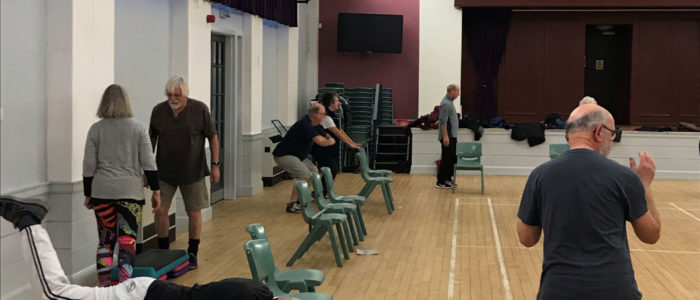New Approach For Hip And Knee Problems Is Best In Class
Patients in Forth Valley with knee and hip problems are being offered a lifeline which can not only relieve pain and prevent immediate surgery, but also, in some cases, avoid having to have a joint replacement altogether.
The pilot project called ‘Best in Class’, which has been operating in Clackmannanshire over the past year, has received enthusiastic feedback from people with lower limb difficulties and is now set to be rolled out across the Forth Valley area. It involves discussing with patients diagnosed with osteoarthritis, what sort of treatment they would like to try to avoid or delay surgery, and an exercise programme to help reduce pain.
Hip and knee briefings and information sessions, led by a physiotherapist, take place at a number GP practices and local health centres where emphasis is placed on a daily exercise regime to improve the muscles linked to the knee, hip and pelvic area. Patients can also attend special exercise classes specifically for lower limb problems which take place at a range of community venues throughout the area. Health professionals report that even if the joint does eventually have to be replaced, exercises prior to surgery support a quicker recovery.
NHS Forth Valley Operational Manager for Surgery, Amanda Forbes, said: “Best in Class allows people to make an informed choice as early in the patient journey as possible. X-rays may show arthritis but someone may not require a new knee for another five years. Advice and exercise helps them in the meantime. This is not about saving money or reducing costs it’s about making sure patients stay as fit as possible in case they do finally require a joint replacement.”
NHS Forth Valley Consultant Orthopaedic Surgeon, Ian McLean, added: “Pain in a joint can be like a wake-up call from your ageing alarm clock. Our ‘Ready to Recover’ community team gives valuable and practical advice on activities, diet, relaxation and social support that can help people feel younger again.”
Patients described the exercise programme as invaluable and life changing. One woman who eventually needed surgery said attending classes helped her recovery enormously as just a day after surgery she was able to move around with two walking sticks.





